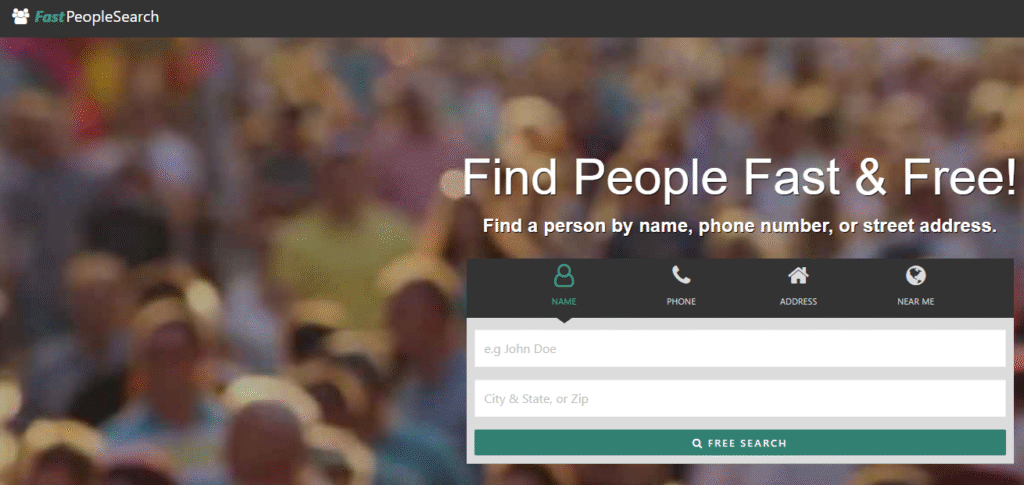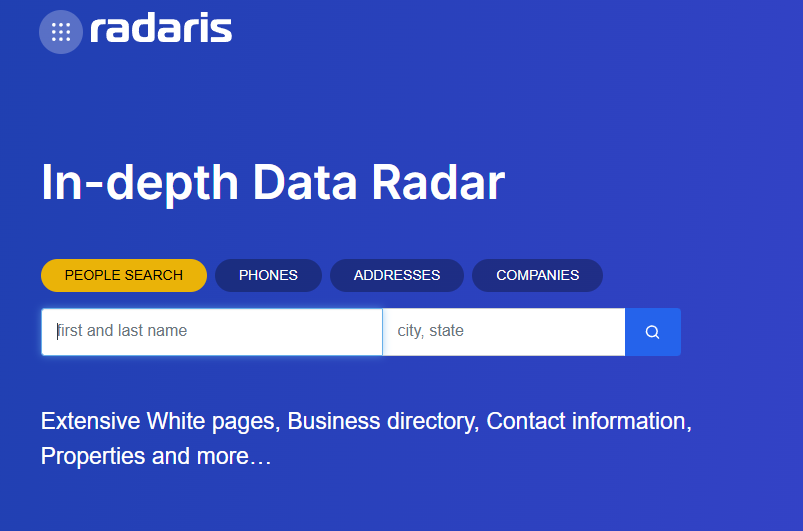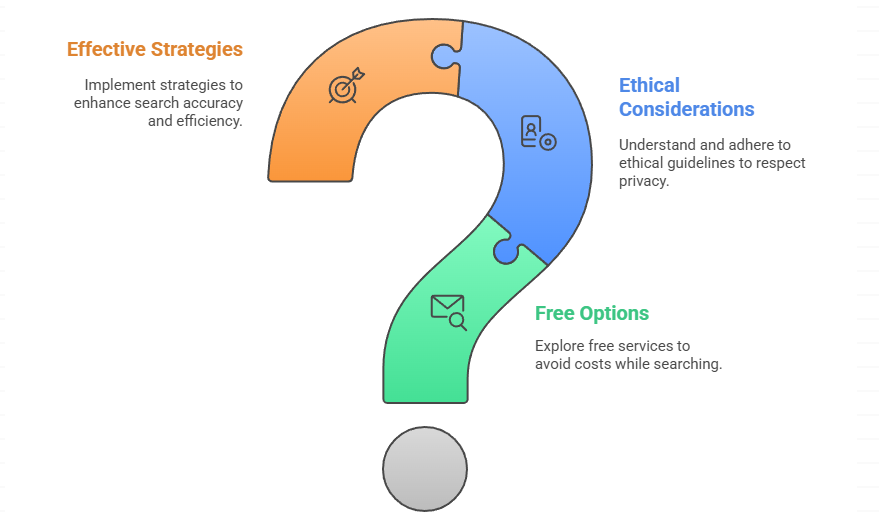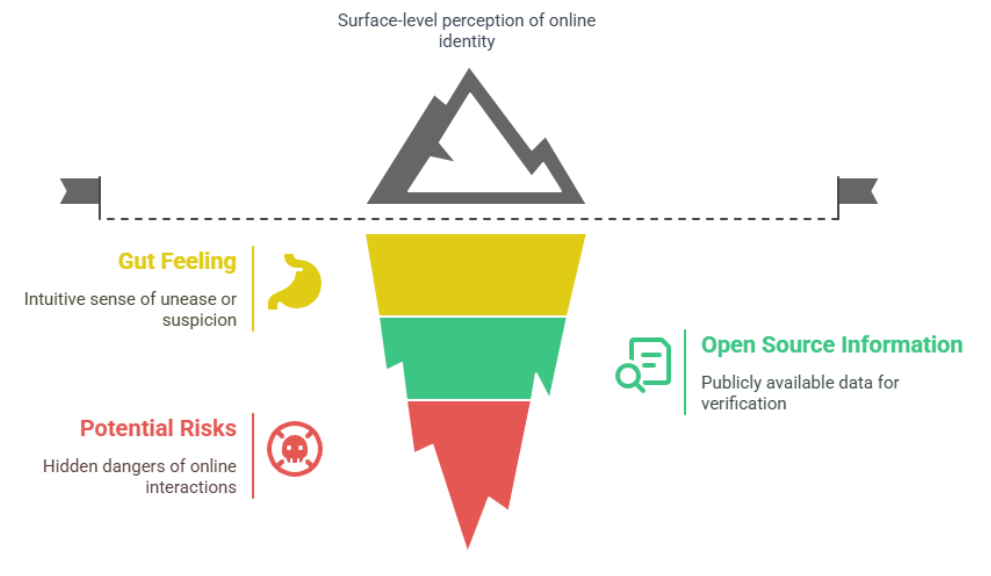Okay, picture this: that moment of pure relief, maybe even a little joy, when you finally track down someone important you’ve lost touch with. For me, it was my childhood best friend, Sarah. After years of searching, all it really took was her name, the city she might be in, and a bit of persistent digging using one of those online people search services. Honestly, the internet is a truly massive place, right? Trying to reconnect with someone, or even just verifying some piece of information about them, can honestly feel like trying to find that proverbial needle in a gigantic haystack. Services like Fastpeoplesearch, Spokeo, and Radaris throw around big promises of finding people and giving you answers, but trying to sift through all that hype and actually find reliable, free resources? That can be a real challenge.
That’s precisely where I hope this guide can help. I’ve spent a considerable amount of time, years actually, wading through the world of online people search. I’ve tested what feels like countless platforms, uncovered both some genuinely useful hidden gems and, unfortunately, more than a few outright scams along the way. Heading into 2025, the landscape has definitely shifted and evolved, and I’m here to share some of my insights – what I’ve learned about how to ethically and effectively leverage these people search sites to find who you’re looking for. And critically, how to do it without necessarily having to shell out a fortune. This guide is really focused on shining a light on the best free people search options available, while also touching on some really crucial ethical considerations that we absolutely need to keep in mind.
Why Would You Even Bother With a People Search Site?
The reasons people turn to a people search site are incredibly diverse, as varied, I suppose, as the people we’re hoping to find. On a personal level, maybe you’re trying to reconnect with that childhood friend, track down a long-lost relative you haven’t seen in ages, or perhaps just satisfy a simple curiosity about someone from your past. I know I’ve used these sites quite a bit when planning reunions – it’s just so helpful for getting updated contact information for former classmates, you know? Saves a ton of time compared to trying to find them through old yearbooks or something.
From a professional standpoint, these sites can be absolutely invaluable for things like due diligence. I’ve had many clients find them surprisingly helpful for conducting preliminary background checks on potential business partners before diving into anything serious. They’re also great for quickly verifying the contact information of new leads you might get, or even doing a little online research before heading into networking events. Now, it is absolutely critical to remember the ethical and legal implications of using this kind of information; that’s something we really need to dig into later. While the power of these tools is undeniable, I completely understand that some people hesitate to use them, maybe feeling a bit worried about privacy or the potential for misuse. It’s a totally valid concern, and my aim here is really to help you navigate these platforms responsibly and effectively, striking that balance.
Top Free People Search Sites
Alright, let’s cut to the chase, shall we? After countless hours of hands-on testing and evaluation – and yes, some frustrating moments! – here are what I consider my top picks for actually free people search sites that offer genuine value as we head into 2025. Now, it’s important to be realistic: “free” almost always comes with some level of limitation, but these particular sites genuinely offer useful starting points without demanding your credit card information upfront. Just a quick heads-up, if you’re looking for independent reviews and comparisons, you can find some decent ones on platforms like guru99.com.
Spokeo: Getting a Feel for Their Online Footprint
Spokeo is typically my first stop when I’m trying to get a quick, general overview of someone’s online presence. Yes, they absolutely have a paid tier, and that’s where the detailed information lives, but the free search alone provides a surprising amount of initial data. You might find potential social media profiles they’re associated with, maybe some addresses that could be theirs, and even possible relatives. I’ve found Spokeo especially useful for quickly verifying leads before jumping on a sales call. I remember one instance vividly: I was prepping to meet a potential client, and a quick Spokeo search revealed they were quite active in a very specific industry forum. That small insight allowed me to totally tailor my opening lines and build rapport almost immediately. The main downside, and you’ll see this pattern, is that the free results often feel like a bit of a teaser, constantly nudging you to upgrade for the full details. But for a fast snapshot of someone’s social media presence, it’s genuinely hard to beat.
Fastpeoplesearch: Good for Quick Contact Info

If your primary goal is simply to find basic contact information, Fastpeoplesearch is honestly a really solid starting point. It’s surprisingly effective at pulling together publicly available data – things like potential addresses, phone numbers, and associated relatives. And the best part? You usually don’t even need to sign up for an account to get this initial look. I actually used Fastpeoplesearch not too long ago to track down a local service provider. I had misplaced their business card, and by just entering their name and a general location, I was able to find their phone number pretty quickly and schedule an appointment. Do be aware, though, that the accuracy can definitely vary with this site, and it is heavily supported by ads, which can be a bit distracting.
Radaris: A Broader View with Public Records and Mentions

Radaris approaches things a little differently by trying to combine public records data with social media mentions and other online references. This can potentially give you a more comprehensive picture of an individual, sometimes uncovering information that might not be as readily available on other platforms. I’ve utilized Radaris when researching potential tenants for a rental property I manage. The free search allowed me to quickly see if there were any publicly available criminal records or past legal issues that had come up, which provided valuable context before deciding whether to proceed with their application. While Radaris does offer much more in-depth reports for a fee, the initial free search is often enough to get a decent sense of someone’s background and their general online activity. According to their own website, radaris.com, they position themselves as a “unique public records company.”
When “Free” Has a Catch: Understanding Paywalls and Those Pesky Hidden Costs
Let’s just be totally honest here: the internet is absolutely littered with offers that promise “free” access to something, only for you to find out it’s anything but once you try to use it. People search sites are, unfortunately, a prime example of this. It feels like a classic bait-and-switch tactic: they dangle the enticing promise of free information, but the minute you’ve invested time and feel like you’re getting close, bam! You’re hit with a paywall or suddenly told you need a subscription to see the crucial details.
I’ve personally experienced this frustration. I spent what felt like a whole afternoon trying to track down an old colleague I really wanted to reconnect with, only to be met with constant prompts to “unlock” the very information I needed by signing up for a premium membership. The initial search was technically “free,” sure, but the actual, actionable information I needed was completely hidden behind that subscription requirement. To try and avoid these kinds of people search scams, it’s always a good idea to look for transparent pricing information right upfront, before you even enter a name. Be extra cautious of sites that insist you create an account before they show you any results at all. A smart move, if you’re just trying out a site, is to use a temporary email address for those initial trials; it helps cut down on potential spam and unwanted solicitations later. And please, please read the fine print carefully – especially anything related to automatic subscription renewals. It’s a tough lesson sometimes, but if something genuinely seems too good to be true online, it almost certainly is.
Beyond the Basics: Thinking About More Advanced Search Techniques
Once you’ve gotten comfortable with the fundamental ways people search sites work, it’s definitely worth thinking about how to level up your skills a bit. Even with the absolute best platforms, finding truly accurate information often requires a little bit of finesse and knowing some slightly more advanced tricks.
One of the most powerful techniques at your disposal is using what are called advanced search operators. These are basically special commands you can add to your search queries to make them much more specific and help you pinpoint exactly what you’re looking for. For example, putting “quotation marks” around a name (like typing “John Smith”) tells the search engine to look for that precise phrase, which helps filter out results with variations or other people with similar names. Another incredibly useful operator is site:, which lets you search specifically within one domain. So, if you typed site:linkedin.com “John Smith”, you would only get results that are John Smith’s profiles on LinkedIn.
Reverse image search is also an incredibly valuable tool, and it’s often overlooked. If you happen to have a photo of the person you’re trying to find, you can upload that image to services like Google Images or TinEye. These services will then search the web for other instances where that exact image appears online. This can be a fantastic way to uncover social media profiles or other websites where the person is featured. I once used reverse image search to help verify the identity of someone I’d met online; the profile picture they used matched images on a professional website they had, which definitely helped boost my trust in their authenticity.
Finally, and this is really important, remember the power of data triangulation. Never rely on just one single source of information when you’re trying to verify something important. Make sure to cross-reference details you find from multiple people search sites, look at social media profiles, and check other relevant online sources. This helps you build a much more complete and, importantly, a more accurate picture of the person.
Ethical Considerations and Staying Within Legal Boundaries
This is a really critical section, and it’s important to pause and think about it. It’s a bit cliché, but it’s true: with great power comes great responsibility. While people search sites can be incredibly useful and powerful tools, they also undeniably raise some pretty serious ethical concerns. Just because a piece of information is publicly available online doesn’t automatically mean you have the right to use it irresponsibly or in a malicious way.
The line between simple, harmless curiosity and something that crosses into online harassment or stalking can be surprisingly thin. It is absolutely crucial to respect people’s privacy and to avoid using these tools to stalk, intimidate, or cause harm in any way. Using information you found on a people search site to contact someone against their explicit wishes, especially after they have clearly asked you not to contact them further, can very quickly cross the line into harassment and can have serious consequences. If, for instance, someone is planning to stalk another person and uses a people search site specifically to acquire personal information about them, that action could absolutely be argued in a court of law to be a part of the overall crime.
Legally speaking, there are also some really important boundaries we need to be mindful of. In the United States, for example, the Fair Credit Reporting Act (FCRA) places quite strict restrictions on using information obtained from people search sites for specific purposes, like employment screening, tenant screening for rental properties, or making credit decisions. You absolutely cannot use information from a non-FCRA compliant site for these purposes without the individual’s express consent. Violating these restrictions can lead to pretty significant penalties. Always make sure you have what is considered a “permissible purpose” for using the information you find, and ensure that you are complying with all applicable laws and regulations in your area. Remember, using these tools responsibly is paramount. Their intended purpose is to help people connect and inform, not to be used for invading privacy or causing harm.
The Future Landscape of People Search
The world of people search is constantly shifting and evolving, driven by advancements in technology and changing attitudes about data privacy – and boy, are attitudes towards data privacy shifting rapidly! Looking ahead, I fully anticipate a significant increase in the use of things like artificial intelligence (AI) and machine learning to really improve the accuracy and efficiency of these platforms. Can you imagine algorithms that could not only find potential matches but also perhaps predict the likelihood of a successful connection based on shared interests or even past associations gleaned from data? It’s fascinating, and a little bit unsettling.
Facial recognition technology is also likely to play an even bigger role, allowing users to identify individuals from images with even greater precision than before. However, this advancement brings with it some really serious concerns about privacy and the potential for misuse. As these technologies become more sophisticated and integrated, we’ll almost certainly see a growing emphasis on data privacy trends and the development of new regulations. Consumers are becoming much more aware of their digital footprints and are increasingly demanding more control over their personal information. I think the future of people search will really hinge on finding that crucial balance between continued innovation and upholding ethical responsibility. The broader trends certainly suggest a future where AI systems are much more intertwined with our daily activities, potentially enhancing both our personal and professional lives, as some places like opentools.ai suggest.
Bottom Line
Navigating the world of people search sites, especially as we move deeper into 2025, can definitely feel a bit overwhelming at times. But, with the right knowledge under your belt and, crucially, a healthy dose of skepticism when needed, you really can effectively and ethically find the information you need. Always remember to prioritize genuinely free resources first, be incredibly wary of hidden costs and those tricky paywalls, and make sure you pause to consider the ethical implications before you take any action based on the information you find.
My hope is that this guide has provided you with some useful tools and the knowledge you need to feel more confident when trying to find people online. Just please, use these resources responsibly, respecting others’ privacy and staying within those important legal boundaries. I’m committed to trying to provide accurate and up-to-date information in this field, which is constantly changing. Feel free to reach out with any questions you might have down the line. Happy searching, and stay safe out there!




